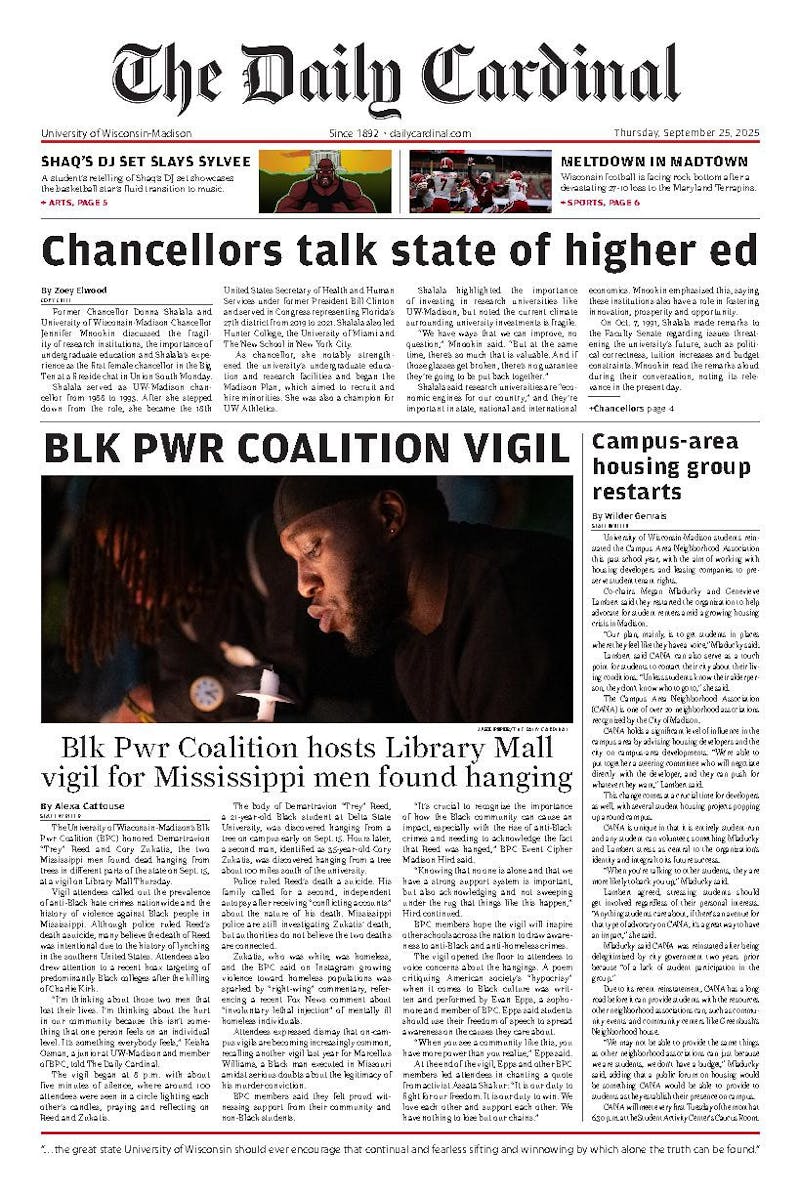Anytime Oscar season rolls around, I’m reminded of how impossible it is to please everybody. After the nominations are announced and the dust has settled on the passive aggressive (or in the case of some of this years nominations, very aggressive) tweets regarding the selections of the Academy, which films were so called “Oscar bait,” I think to myself how hard it must be sometimes to be a member of the Academy. And while I do agree that occasionally smaller films are overlooked in favor of “Oscar Bait,” I would submit that, more often than not, the best film of the year typically receives the nominations and awards it deserves.
However, I’m done sticking up for the Academy—this piece is about some terrible decisions they made with their nominations this year. This is about Oscar snubs in two major areas: the nominations for best supporting actor and best director.
The major snub in the best supporting actor category was Leonardo DiCaprio for his role as nefarious slaver owner Calvin Candie in Quentin Tarantino’s fantastic “Django Unchained.” To me, it’s crazy that Leo has been nominated four times and has never taken home an Oscar. When I saw his performance as Candie, though, I thought “this year is going to be his year.”
DiCaprio is one of America’s most talented and best known actors, typically starring the heroic lead in many popular films; So for him to disappear entirely into this role of a character Tarantino himself has called “the most evil character I’ve ever written” (and that’s saying something) is remarkable in itself. But DiCaprio isn’t just playing a bad guy in this film, he’s creating a complex character, one who thinks he is much smarter than he really is, but is eventually revealed as a twisted and perverted child of a man. And this all comes across in the subtlety of his performance.
What’s more, the movie (a quality piece in itself) clearly lags when he isn’t on screen, a tell tale sign of the engrossing quality of his performance. In his place for the nomination are five actors who have already taken home the Oscar, and, to me, DiCaprio’s lack of a nomination in the place of these “safer” choices shows the Academy’s reluctance to nominate a bold and controversial performance.
However, the even bigger snubs have to be exclusion of directors Kathryn Bigelow and Ben Affleck from the best director category. To be fair, all the nominations for best director are merited, but to leave off two of the best-directed films of the year is a travesty.
To be clear, best directed does not mean best films of the year, though those two categories are often linked (so much so that since 2003 only one film that won this Oscar didn’t take home best picture). Things like the film’s organization and how that affects its pace and entertainment value, the overall performances and how and when what we are shown contributes to the effectiveness of the film; these are all things that make up a well directed film.
The best example I can give you from this year is Affleck’s “Argo.” With this film (the best of the year in my opinion), Affleck manages to tell a thrilling story about a group of CIA agents who produce a fake movie in order to get a group of six Americans out of Iran during the hostage crisis in the ’70s.
The film is able to keep its audience glued to the screen, while simultaneously providing insightful commentary on what it takes to make a movie in Hollywood. Affleck manages this because, as a talented director, he knows what to show the audience when in order to keep the pace of his thriller. Every time the whole “making a fake movie” section starts to slow, Affleck intercuts scenes of the hostages so we, as an audience, know what’s at stake. All this leads to the most intense final half hour of any film this year. At every turn, the plan to save the hostages comes so close to failing, and, even though we know it doesn’t, we’re still sincerely worried about the characters. To me that’s the sign of a good director; someone who can take a story where the audience already knows the ending and still manage to make it thrilling as all hell.
This allows me to transition nicely into the second snub—Kathryn Bigelow and her hunt for Osama Bin Laden in “Zero Dark Thirty.” Similarly to Affleck’s “Argo,” most people who saw the movie already knew how it was going to end, yet Bigelow also managed to make it into an exciting and intriguing film. However, what’s most impressive about Bigelow’s directing is her ability to funnel massive amounts of information into a coherent narrative that can still be exciting.
The story takes place over several years and features several dead ends, false leads, and difficult names to remember. Part of this is intentional, to give the audience a sense of the tiring circumstances endured by the agents in the hunt for Bin Laden, yet the fact that Bigelow keep this tone while managing not only keep her audience interested but excited as well is a testament to her ability as a director.
Got a beef with the Oscars? Let Lars know at llindqvist@wisc.edu





